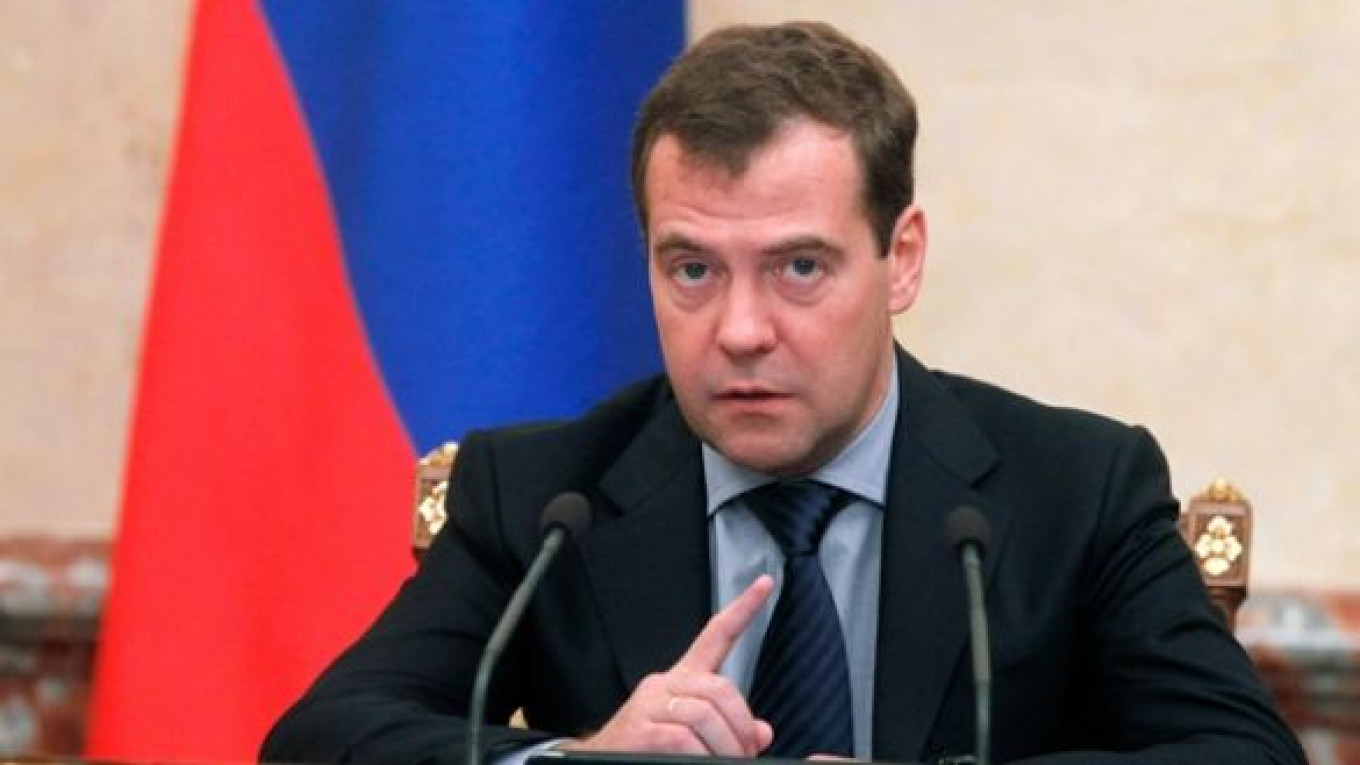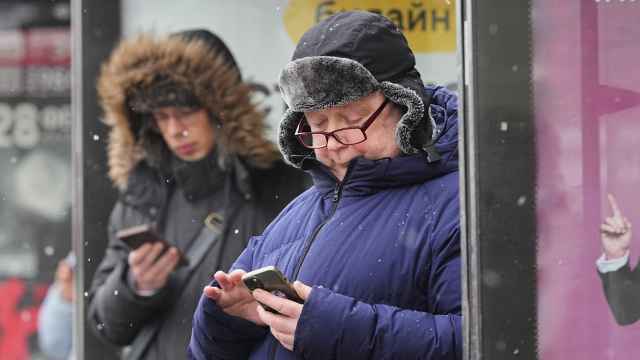Prime Minister Dmitry Medvedev has formally established a national public television station, but observers expressed skepticism that the broadcaster, supposed to be neither state-run nor commercial, will meet its founder's high hopes.
Medvedev signed the station's founding decree and earmarked its budget, and the Justice Ministry has registered it, Interfax reported Friday, citing spokespeople of both the government and the Justice Ministry.
The founding decree, on the government's website, is dated Sept. 12.
But the ambitious project was dealt a blow when it emerged last week that the Defense Ministry had won a battle over its Zvezda TV channel, which the government wanted to transform into the new broadcaster, providing it with valuable infrastructure and terrestrial transmission frequencies.
Defense Minister Anatoly Serdyukov confirmed to Kommersant that Zvezda "will remain, in one form or another, at the very best just as it is now."
As a result, the new station will be available only over cable and satellite transmission. Government spokeswoman Natalya Timakova put on a brave face Friday, telling reporters that the concept approved by Medvedev envisaged these two transmission technologies.
The station's confinement to cable and satellite threatens to seriously limit its audience because both transmission technologies have low market penetration in the country.
But the government did manage to fully transfer Zvezda's 1.5 billion ruble ($48 million) annual state subsidy to the new broadcaster. Serdyukov acknowledged that the military would have to look for additional financing.
"Maybe we will even set up a foundation," he told Kommersant in comments published Friday.
The Defense Ministry's refusal is the second rebuff for Medvedev. The government first sought to use TV Center as a platform but gave up after stiff resistance from City Hall, which runs the channel.
Meanwhile, the head of the public broadcaster, Anatoly Lysenko, said the money was not enough.
"This is in my estimation something like 65 to 70 percent of what is needed," Lysenko said, RIA-Novosti reported.
He added that the station would start broadcasting in spring 2013.
Public television is seen as Medvedev's brainchild, since he first talked about setting it up at the beginning of his presidency. The plan seemed to contradict the Kremlin's established media policy, which centers on rigid control of national television, the prime source of political information for much of the population.
Medvedev has soldiered on with his TV plan since swapping jobs with Vladimir Putin, who has rolled back many of the liberal reforms of his predecessor since returning to the Kremlin in May.
Observers have voiced doubts over Medvedev's political future, with many predicting that Putin will fire him well before the next State Duma elections in 2016.
Alexei Mukhin, head of the Center of Political Information, a think tank, said the outcome of the struggle over Zvezda confirmed doubts about public television.
"If its idea is to criticize the government and give more airtime to the opposition, why is it state-funded?" he asked.
Officials have said public television should begin with state funding and later operate through "donations." Doubts have been raised, however, that a license-fee-based system, like the one used by Britain's BBC, is sustainable in Russia.
Worries also have surfaced that Kremlin interference is likely because the station's director, who is also its editor-in-chief, is appointed by the president and can be dismissed by him.
Related articles:
A Message from The Moscow Times:
Dear readers,
We are facing unprecedented challenges. Russia's Prosecutor General's Office has designated The Moscow Times as an "undesirable" organization, criminalizing our work and putting our staff at risk of prosecution. This follows our earlier unjust labeling as a "foreign agent."
These actions are direct attempts to silence independent journalism in Russia. The authorities claim our work "discredits the decisions of the Russian leadership." We see things differently: we strive to provide accurate, unbiased reporting on Russia.
We, the journalists of The Moscow Times, refuse to be silenced. But to continue our work, we need your help.
Your support, no matter how small, makes a world of difference. If you can, please support us monthly starting from just $2. It's quick to set up, and every contribution makes a significant impact.
By supporting The Moscow Times, you're defending open, independent journalism in the face of repression. Thank you for standing with us.
Remind me later.







